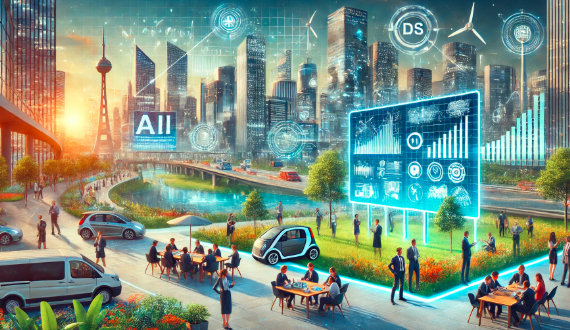Introduction
The business world is constantly evolving, with new trends and innovations shaping industries at an unprecedented pace. “Business Trends Innovation Conversationswithjessica” dives deep into the latest developments, offering insights into how businesses can adapt and thrive. From AI-driven advancements to sustainability initiatives, staying ahead requires understanding these shifts and leveraging them effectively.
The Evolving Role of General Counsel in Business Innovation
Traditionally, general counsels focused on legal matters, ensuring compliance and mitigating risks. However, the modern business environment has transformed their role into a strategic asset. Today, they are integral to business growth, influencing corporate policies, guiding ethical decision-making, and fostering innovation.
Companies recognize that a proactive legal team contributes to innovation by ensuring regulatory alignment with technological advancements. For instance, firms in fintech and healthcare heavily rely on their legal teams to navigate complex compliance frameworks while pushing boundaries in AI and digital health solutions.
Table: Traditional vs. Modern General Counsel Roles
| Aspect | Traditional Role | Modern Role |
|---|---|---|
| Focus | Legal compliance | Business strategy and innovation |
| Responsibility | Risk mitigation | Growth facilitation |
| Involvement | Advisory | Decision-making and execution |
This shift underscores the importance of legal expertise in shaping forward-thinking business strategies.
Integration of Generative AI in Business Operations
Artificial intelligence, particularly generative AI, is revolutionizing industries by automating processes, enhancing productivity, and enabling data-driven decision-making. Businesses are increasingly adopting AI to streamline operations, personalize customer experiences, and optimize marketing strategies.
A report by Gartner estimates that by 2025, generative AI will contribute to 30% of the total AI market, highlighting its growing influence. Organizations leveraging AI benefit from improved efficiency, cost reduction, and enhanced customer engagement.
Key Applications of Generative AI:
- Content Creation: AI-generated text, images, and videos for marketing campaigns.
- Customer Support: Chatbots and virtual assistants enhancing user interactions.
- Data Analysis: AI-powered insights for better decision-making.
- Product Design: AI-driven innovation in manufacturing and design.
Emphasis on Sustainability and Circular Economy
Sustainability has become a critical factor in business operations, with companies prioritizing eco-friendly practices. The circular economy model promotes resource efficiency, waste reduction, and product lifecycle extension.
For instance, fashion brands are adopting sustainable materials, while tech companies focus on recyclable electronics. Governments and consumers alike demand transparency, pushing corporations to align with green initiatives.
Case Study: Tesla’s Sustainability Strategy
Tesla exemplifies sustainable business innovation by integrating renewable energy solutions into its operations. From electric vehicles to solar energy storage, the company sets a benchmark for environmentally conscious enterprises.
AI and Worker Well-being
The rapid adoption of AI raises concerns about job displacement, but it also creates opportunities for workforce transformation. Companies invest in reskilling programs to equip employees with AI-related skills, ensuring a seamless transition into a tech-driven economy.
How AI Enhances Worker Well-being:
- Automation of Repetitive Tasks: Allows employees to focus on higher-value work.
- Enhanced Work-Life Balance: AI-driven scheduling and task management reduce burnout.
- Increased Job Satisfaction: Employees engage in creative and strategic roles rather than monotonous tasks.
Collaboration as a Catalyst for Innovation
Businesses increasingly recognize the power of collaboration in driving innovation. Strategic partnerships, cross-industry alliances, and research collaborations foster knowledge exchange and accelerate growth.
Successful Collaborative Initiatives:
- Google and NASA: AI research for quantum computing advancements.
- Apple and IBM: Enterprise mobility solutions.
- Microsoft and OpenAI: AI-powered productivity tools.
Future of Shopping: Insights from Industry Leaders
The retail sector is undergoing significant transformation, with technology reshaping the shopping experience. Personalization, omnichannel strategies, and AI-driven recommendations define modern retail.
Trends Shaping the Future of Shopping
- Augmented Reality (AR): Virtual try-ons enhance the online shopping experience.
- Voice Commerce: AI-powered voice assistants facilitate seamless transactions.
- Sustainability: Consumers prioritize ethical and eco-friendly products.
Adapting to the Algorithm: Navigating Modern Consumerism
Algorithm-driven recommendations influence consumer behavior, making it crucial for businesses to optimize their digital presence. Search engine algorithms, social media feeds, and e-commerce personalization dictate product visibility.
Strategies for Businesses:
- SEO Optimization: Enhancing content to rank higher in search results.
- AI-Driven Marketing: Personalized ads based on user behavior.
- Social Proof: Leveraging customer reviews and influencer endorsements.
Conclusion
Staying ahead in the business world requires adaptability and a proactive approach to innovation. “Business Trends Innovation Conversationswithjessica” highlights the key developments shaping industries, from AI integration to sustainability initiatives. Embracing these trends ensures businesses remain competitive in an ever-evolving landscape.
RELATED ARTICLES
Types of Stand Mixers: Choosing the Best One for Your Kitchen
How to Choose the Best Laptop for Work and Gaming
Tickzoo: The Rise, Fall, and Legacy of a Controversial Platform


